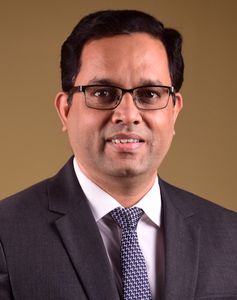Improvements in our knowledge of human biology at the molecular and genetic levels have opened avenues to a potential golden era of cancer care―where identification of a tumour’s unique signature is a reality, and where personalised therapies can be easily crafted using innovative diagnostic solutions.
Cancer continues to be a leading cause of mortality across the world. In India, there were more than 14 lakh cases in 2022. As per the National Cancer Registry, one in nine people are likely to develop cancer in their lifetime. Moreover, the incidence of cancer is estimated to increase by 12.8 per cent in 2025 as compared to 2020. How will we meet the challenge that cancer poses to future generations?
Advances in technology are reshaping health care, offering patients the means to track their health and giving clinicians deeper insights into the causes of cancer and its management. Technologies and innovations like CRISPR (Clustered Regularly Interspaced Short Palindromic Repeats), artificial intelligence, tele-health, cryo-electron microscopy, and robotic surgeries are accelerating the fight against cancer. Here, diagnostics tools play a crucial role. Innovative diagnostics technologies such as next-generation sequencing, liquid biopsies and artificial intelligence powered image analysis algorithms are facilitating an evolution in personalised cancer care.
For instance, the implementation of next generation sequencing (NGS) has improved our understanding of cancer and opened avenues for patients with personalised treatment options. We can use NGS to detect genomic alterations driving tumour development and provide insights to inform tailored care plans, including targeted treatment and immunotherapy. Moreover, through comprehensive genomic profiling (CGP), we can analyse hundreds of cancer-related genes and determine the specific genomic profile of an individual tumour.
Second, advances in computation and artificial intelligence in digital pathology have improved access to new treatment options for patients with solid tumours. AI in digital pathology is showing promise to meet the demand for more accurate and comprehensive assessment of pathology results to enable improved patient outcomes. These can help support clinical trials in the investigation of targeted therapy options. Expanding access to innovative tools will enable precise diagnoses, improved clinical decision-making, and lead to more personalised treatment strategies.
However, in India, the cancer burden is compounded by socioeconomic disparities and fragmented care provisions. Access to appropriate cancer care, including basic diagnostic tools, is still sparse in many parts of India.
Cervical cancer is the second most common women-related cancer in India, afflicting more than 1.23 lakh women each year. Despite being the most preventable and treatable cancer, around 77,000 women die of it each year, as per the Globocon 2020 statistics. According to the WHO, cervical cancer can be eradicated by 2030 by the implementation of a global strategy involving the vaccination of young girls against human papillomavirus (HPV), screening 70 per cent of women from 30 to 69 years of age, and treating 90 per cent of women with precancerous lesions. The WHO recommends HPV testing as a primary screening modality over pap testing and visual inspection with acetic acid. However, there is a lack of awareness around this effective screening tool.
India requires a digital roadmap designed to comprehensively address preventive and curative cancer management and deliver care that is of higher quality, more timely and precise, in an equitable manner across India.
Here is where efforts like the First Cancer Care (FCC) initiative can be instrumental. FCC envisages practical solutions for reshaping how millions of patients are treated and for improving efficiencies in cancer care. The recommendations are laid out in three cancer care value pathways: population health, capacity building and data pathways. This includes an independently implementable segment of the cancer care value chain, comprising digital and physical processes for a continuum of care.
Using digital tools to support screening will give millions the opportunity for early detection and treatment, leading to better health outcomes. These initiatives will be run in alignment with Ayushman Bharat Digital Mission (ABDM). A two-year pilot will be rolled out by the government of Meghalaya in association with the Union health ministry in East Khasi Hills district. It covers oral, breast, cervical, oesophageal and lung cancers.
The other area that can be explored is telemedicine. SARS-CoV-2 has highlighted the potential use of this tool effectively. Telemedicine can be utilised across the cancer care continuum including prevention, screening, diagnosis, treatment, rehabilitation and palliative care.
Likewise, innovative mHealth solutions can provide remote access to health care services. It can be used to provide cancer education, preventive measures, and counselling services to patients and their families. This can help to reduce the burden of travel for patients.
Sewlikar is head of medical and scientific affairs, Roche Diagnostics India & Neighbouring Markets.



